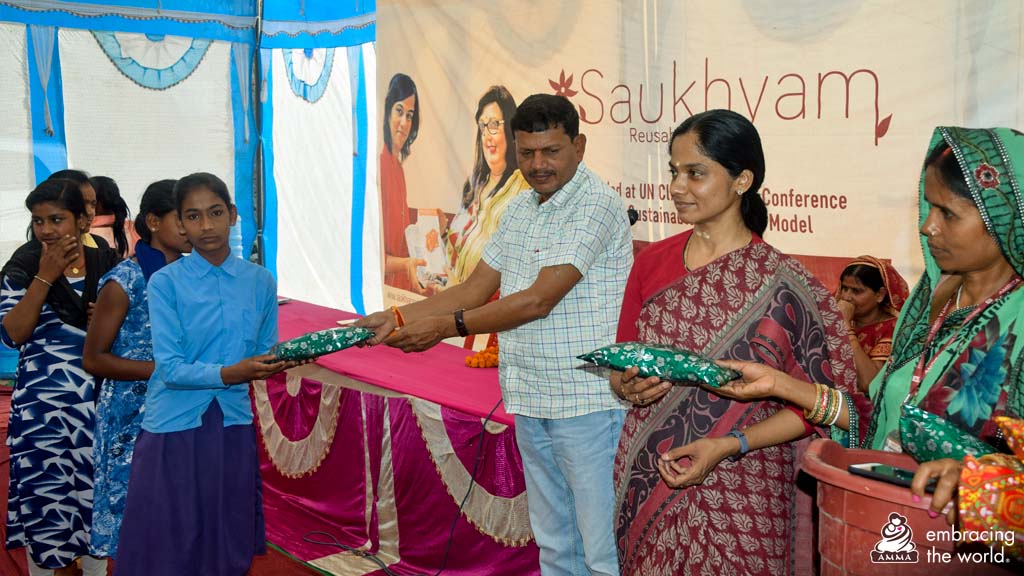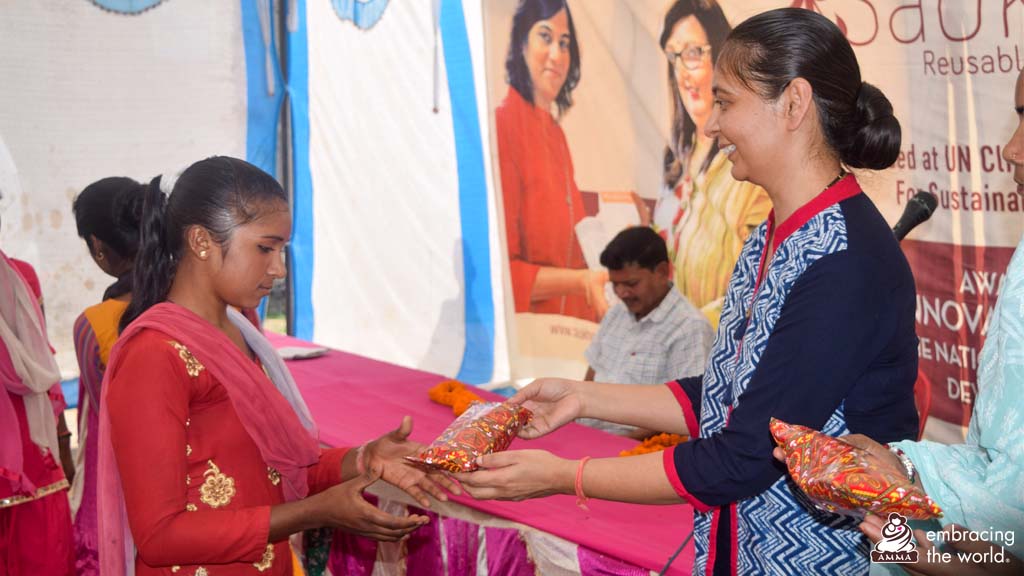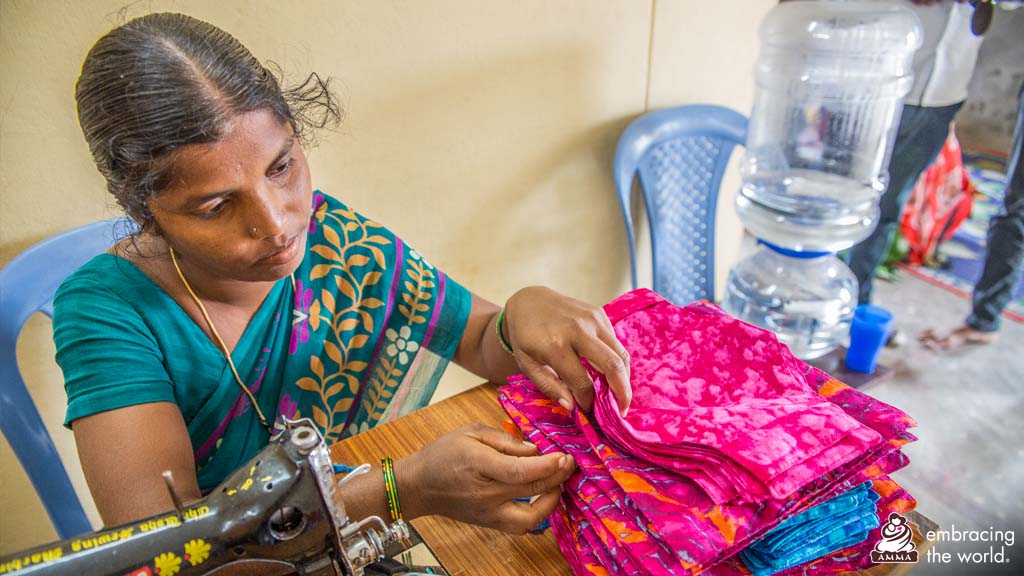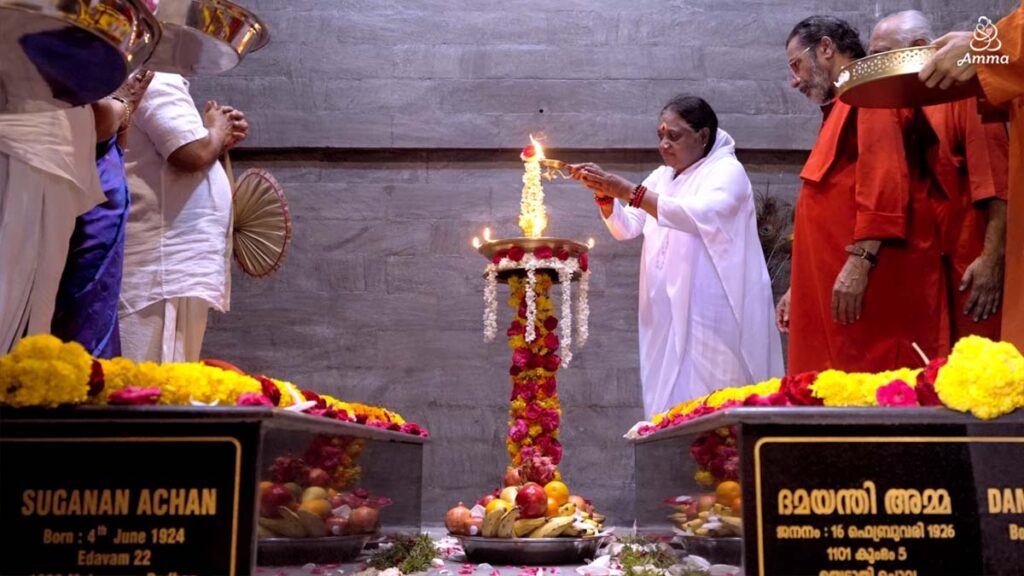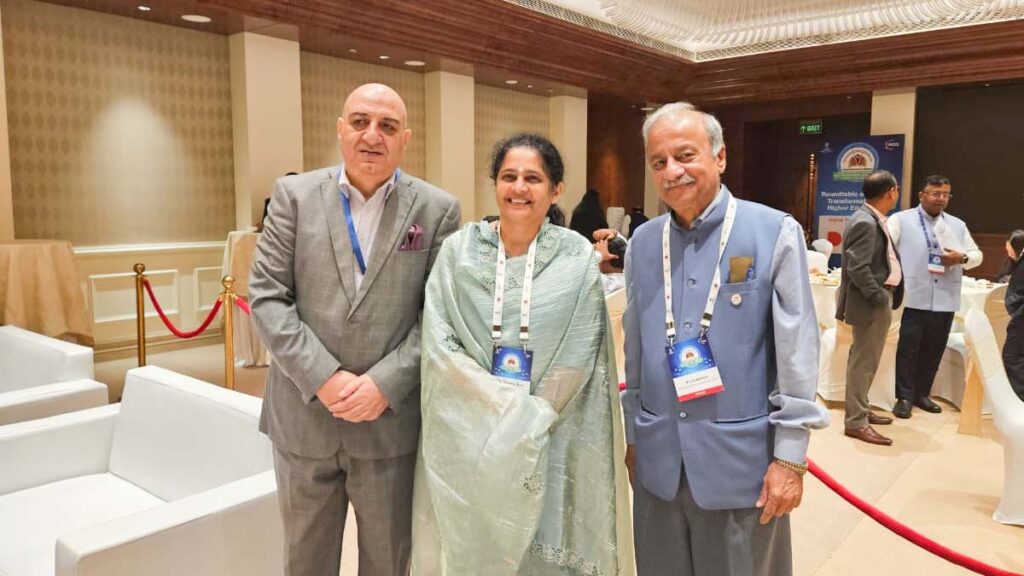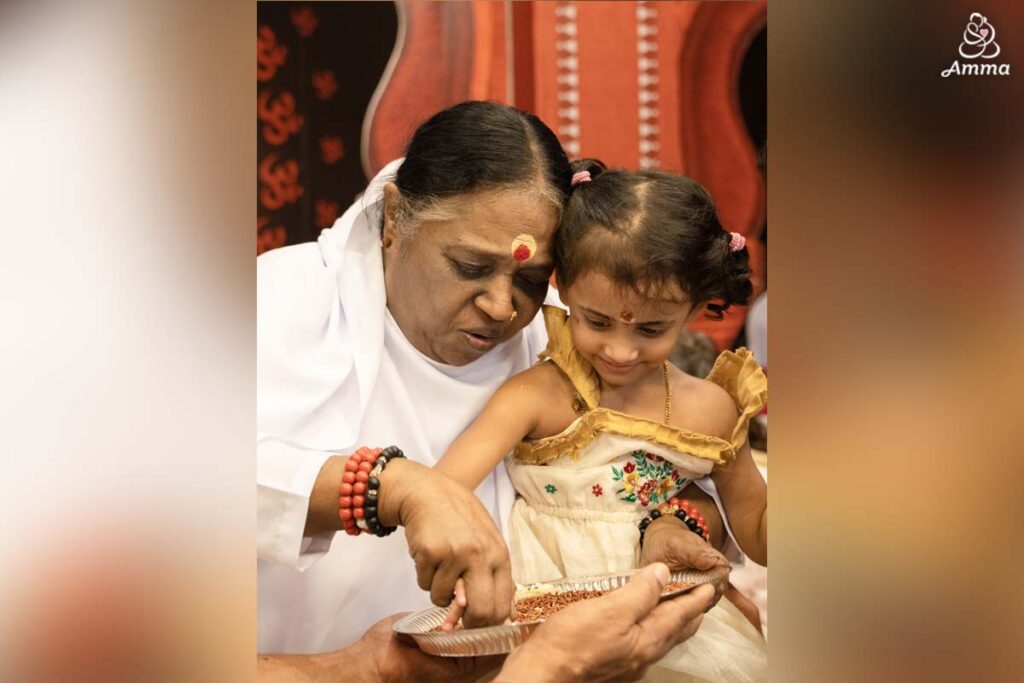The vision for Menstrual Hygiene Day is by 2030 to create a world where no woman or girl is held back because she menstruates. This means that every single one is empowered to manage her menstruation safely, hygienically, with confidence and without shame. This includes affordable menstrual products that do not harm our environment.
As Amma says, “When people live in harmony with Mother Nature, the song of life becomes sweet.”
In India, where women are nearly half of the country’s 1.38 billion people, the sheer volume of menstrual non-biodegradable waste has severe environmental implications. With the majority of the country living in low-middle class backgrounds, observing healthy menstrual hygiene practices with environmentally friendly products relies on sustainability, affordability and education. This is why Amma started the Saukhyam Reusable Pads project.
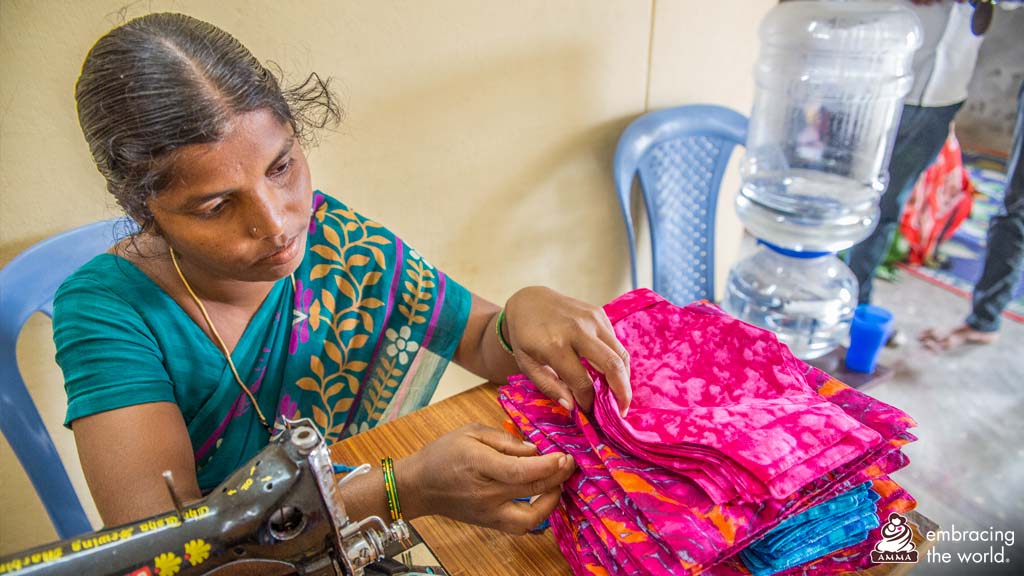
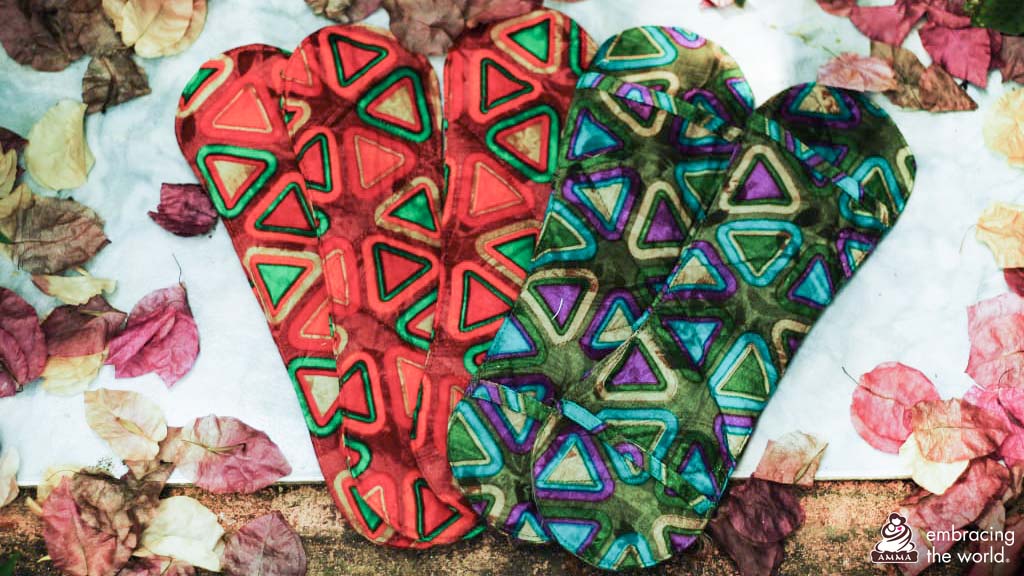
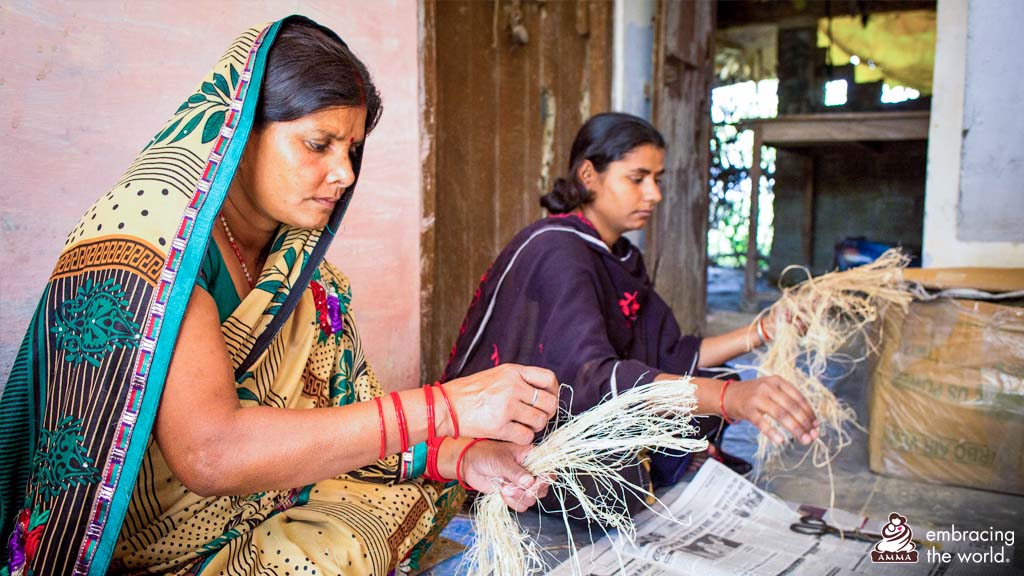
The international journal BMC Women’s Health, part of Springer Nature, has published the first scientific study conducted by the Saukhyam team—A novel banana fiber pad for menstrual hygiene in India: A feasibility and acceptability study. One hundred fifty-five rural and 216 urban women from Bihar, Delhi, Kerala, Karnataka, Maharashtra, Tamil Nadu and West Bengal participated.
Saukhyam is the world’s first reusable pad made from banana fiber and cotton cloth. The same high-quality pad that is exported and sold internationally is also made available to women and girls in remote, rural areas across India and in Nepal. Banana fiber is a natural absorbent that is obtained from agro-waste and its use helps prevent the cutting of trees for cellulose fiber, which is the absorbent in 99% of disposable pads.
“It is natural for women to ask, ‘How safe is this option especially in the reusable context?’” explains Dr Krishnasree Achuthan. Dr Achuthan is one of the study’s authors and is a professor with the School of Engineering and the School for Sustainable Development at Amrita Vishwa Vidyapeetham (Amrita University).
“When we explored to answer this, we found a large dearth of scientific studies in this regard.”
During the COVID-19 pandemic, with essential services suspended, poverty and deprivation of menstrual materials is affecting thousands of girls and women. Known as ‘period poverty’, the United Nations Population Fund (UNFPA) defines it as the struggle many low-income women and girls face trying to afford menstrual products within their overall economic vulnerability. Reusable pads provide an affordable alternative, as in the long run, disposable pads cost much more.
The Saukhyam study aimed to examine the health safety of the banana fiber pads and included analysis of CO2 footprint, microbial load, pH, and the ability of the pad to withstand pressure after absorption. Interestingly, the study found the microbial load on a three-year reused banana fiber pad was similar to that of an unused one.
The women who participated in the study also compared the banana fiber pads’ characteristics, such as leakage and comfort, to their prior practices. They reported general levels of satisfaction, leading them to recommend banana fiber pads to others. Their preference highlighted concerns for the environment, health and cost as decisive factors.
In terms of numbers for the banana fiber pads, there were slightly higher approval rates in rural areas than urban. For feasibility, it was 82.2% rural and 80.3% urban, and the overall acceptability rate was 80.2% in rural India and 77.5% in cities.
It was also Amma’s concept that Saukhyam Pads be made by women in our self-reliant villages project—Amrita SeRVe—in order to give them another way to earn for their families. Today, there are production centers in Kerala, Uttar Pradesh, Bihar, Uttarakhand and Jammu, and 46 women are gaining confidence in knowing that their work helps other women and our planet.
“Reusable pads additionally solve the problem of waste and help mitigate climate change,” explains Anju Bist, Co-director with Amrita SeRVe.
“When one makes the switch, one prevents the generation of up to 125 kg non-biodegradable menstrual waste. The emission of up to 232 kg CO2 equivalent is prevented. Saukhyam works with young school and college students to inculcate in them habits of sustainable menstruation.”
Adds Dr Achuthan, “What moved us the most from this study is that the cost of pads continues to affect women’s choices in rural areas. And women compromise their health to save a few rupees. Having a choice was a luxury for most women!”
Over time, reusable pads cost only one-tenth the amount that one pays for repeat purchases of disposable pads. They are also free from toxins and chemicals that are part and parcel of most disposable menstrual hygiene products.
With disposable pads, the cellulose fiber that is obtained by cutting trees must be bleached to get the white color and that leaves trace amounts of dioxins on the pads. Dioxins are carcinogenic and endocrine disruptors. There is a good chance that when we wear disposable pads, these dioxins will end up in our bloodstream through the permeable vaginal skin.
“Amma was our sole inspiration for this work,” concludes Dr Achuthan. “As Amma often emphasizes, it is our duty to protect the planet and offering sustainable, green and affordable options are the only ways to help Mother Earth and her children.”
